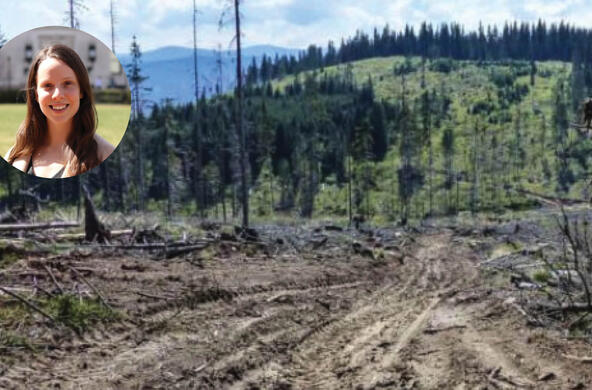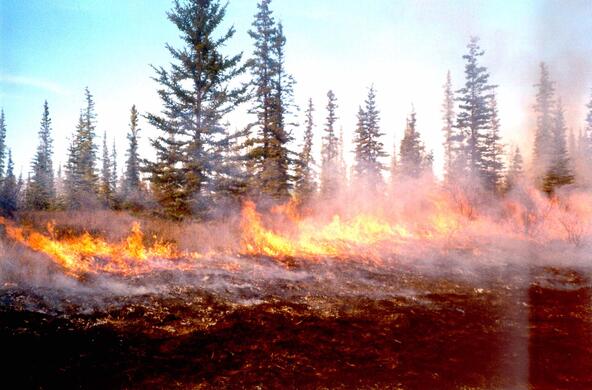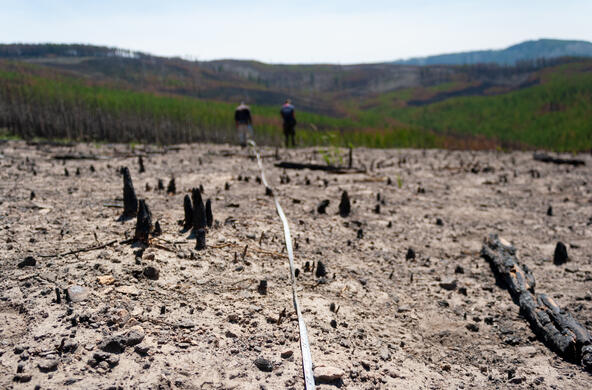- Profile
- Videos & Podcasts
- Publications
Currently, Dr. Hall’s research focuses on studying forest carbon in the western United States and Alaska. At the Cary Institute, she is collaborating with Dr. Winslow Hansen and Dr. Charlie Canham to use simulation models and geospatial analysis to examine drivers of forest carbon and project future forest carbon.
Current Research
Annual burned forest area in the western United States has rapidly increased over the past several decades, threatening forest carbon stocks. If forests are to prove an effective component in natural climate solutions, it is critical to develop rigorous baselines of current carbon storage across landscapes to regions from which we can assess future change. Simulation models are a promising tool for developing such baselines because they represent spatially continuous ecological processes that enable seamless projections into the future. Dr. Hall is validating forest carbon outputs from DYNAFFOREST, a state of the art forest and fire model, against those from forest inventory data to test the effectiveness of the simulated baseline. Once validated, she will simulate future forest carbon under various development, climate change, and disturbance scenarios to determine potential carbon trajectories and relationships between land ownership, development, and carbon markets. Finally, she is identifying the tradeoffs between maximizing forest carbon storage and other forest ecosystem services such as water provision, timber, and wildlife habitat. Identifying pathways towards increased carbon storage despite a host of anticipated challenges within the next century will help scientists and managers alike make crucial decisions about managing current forests for desired future outcomes.
Previous Research
Jazlynn graduated from the University of Wyoming with degrees in Geography and Anthropology. She received her Ph.D. from Columbia University in ecology and environmental biology, working with Dr. Maria Uriarte. Her Ph.D. research drew from principles in ecology, hydrology, and geography to identify the effects of forest disturbance from extreme events on carbon sequestration and streamflow in Puerto Rico. Through funding from the NSF-GRFP and the NSF-INTERN programs, Jazlynn was able to conduct fieldwork alongside other members of the Luquillo Long-Term Ecological Research (LTER) community assessing forest damage from Hurricane Maria. She collaborated with scientists at the USGS, USFS, and NASA to evaluate the extent of the forest damage using remote sensing methods and to determine the subsequent impacts on streamflow.




